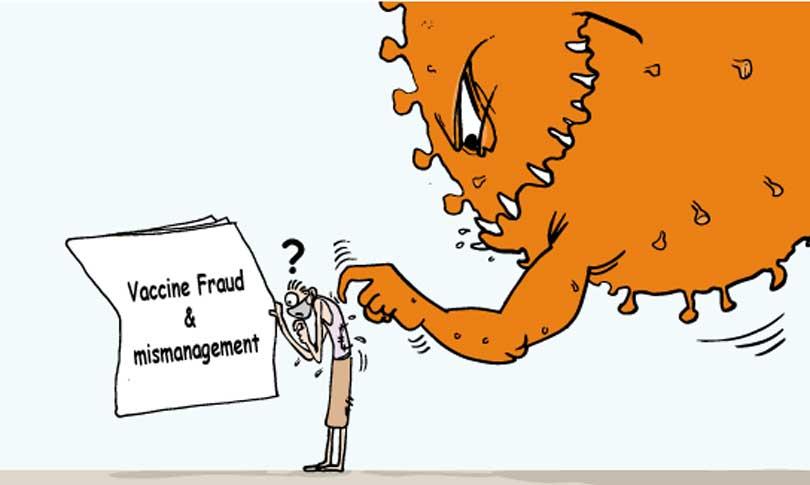Reply To:
Name - Reply Comment

Despite chest thumping by some government ministers who are boasting as if government has contained the COVID-19 pandemic, the country is in dire straits in terms of economy as well as COVID-19 pandemic control. The number of patients in many hospitals has reached the saturation state, where COVID-19 patients are sleeping on the floor; many patients have to stay at home for days even after being tested positive for coronavirus for want of transport facilities and beds in hospitals.
Even doctors are lamenting that the PCR reports are being issued several days after tests being carried out. The daily death toll of COVID 19 patients have reached almost 50, the daily positivity count is around 3000, little less than the number of total number of patients detected during the whole first wave of the pandemic (From March to October, 2020).
Four leading medical associations in the country - The Sri Lanka Medical Association (SLMA), the Government Medical Officers’ Association (GMOA), the Association of Medical Specialists (AMS) and the SLMA Intercollegiate Committee (SMIC) - as well as the Public Health Inspectors’ Union (PHIU) have requested the government to “go for a two-week lockdown, continuously and at a stretch.”
The medical associations have pointed out the futility of inter-provincial travel restrictions in the light of the infection of coronavirus being rampant in all provinces. They were also of the view that the isolation of individual Grama Niladhari divisions was ineffective as infection has spread way beyond the GN divisions by the time decision to isolate them are taken. They had pointed out that the “14-day lockdown covers two cycles of incubation periods of infection and that is likely to be adequate to break the chain of uncontrolled spread of the disease.”
However, the government is still dragging its feet citing economic consequences of such a long lockdown of the country. Ajith Nivard Cabraal, State Minister of Finance, Capital and Public Enterprise Reforms said on May 18 that the loss to the country’s economy due to the island wide travel restrictions imposed in the previous four days was over Rs.60 billion.
Nobody would contest the State Minister’s argument that the travel restrictions were having a huge bearing on the economy. At the same time, there is a danger of more drastic restrictions would be needed if the situation goes out of hand. In the meantime, echoing the statements by the head of the World Health Organization (WHO), Tedros Adhanom Ghebreyesus, President Gotabaya Rajapaksa said on April 26 that vaccinating citizens is the only solution to the COVID-19 pandemic. However, vaccination seems to be a long term measure, due to the uncertainty in securing sufficient number of vaccine doses by the country in the near future.
The uncertainty of the progress of the vaccination programme and the huge demand for the relatively small number of doses remaining from vaccines that had already been secured by the country has created an ugly scramble for vaccines. Last week the bus owners threatened to stay away from the roads if the bus crews are not vaccinated. It was alleged that in the Moratuwa area, vaccines are administrated to those who had been recommended by a local politician. Many people who had gone to vaccination centres had complained on social media that influential people were given priority, even over elderly people.
Yesterday, when family members of doctors were vaccinated, other health workers protested claiming that their family members were ignored. The PHIU President Upul Rohana told media that they would keep away from working unless their family members are vaccinated.
World Health Organisation (WHO) has prepared a priority list of persons for vaccination which gives importance first to minimising deaths and then to minimising the spread of the disease. The United Nations International Children’s Emergency Fund (UNICEF) points out that the WHO had advised that priority groups should include health and social care workers on the frontlines, people over the age of 65, people under the age of 65 who have underlying health conditions that put them at a higher risk of dying from COVID-19. However, those priorities have been ignored in Sri Lanka; corruption has crept into the process.
Vaccination in a haphazard manner would not give the expected benefits. The government must streamline the whole process in a transparent manner, taking into account all relevant issues including the criteria for lockdowns, curfews and isolations and vaccination and inform the public what lies in store for them.